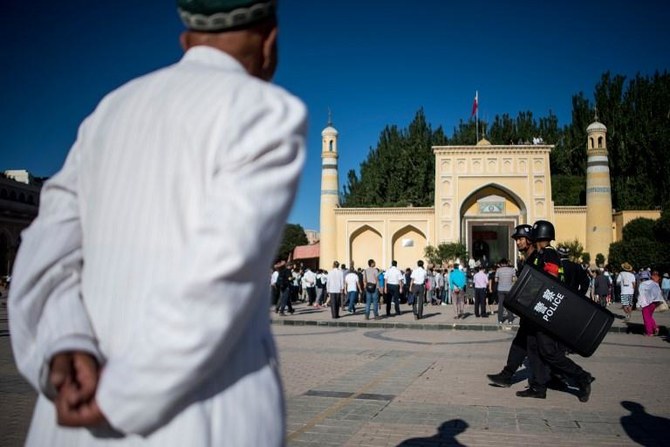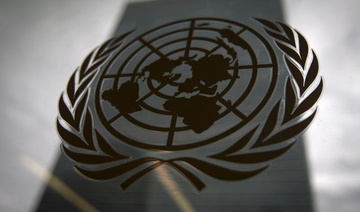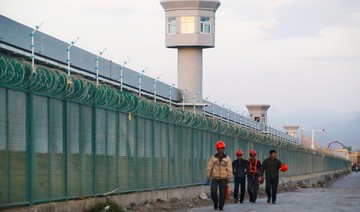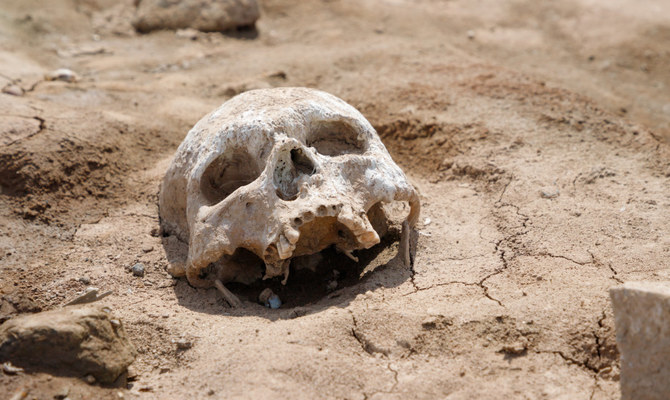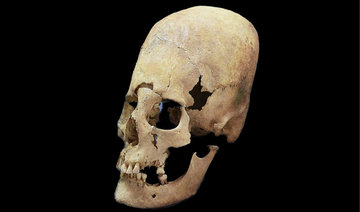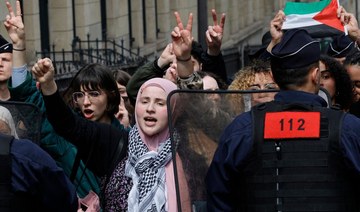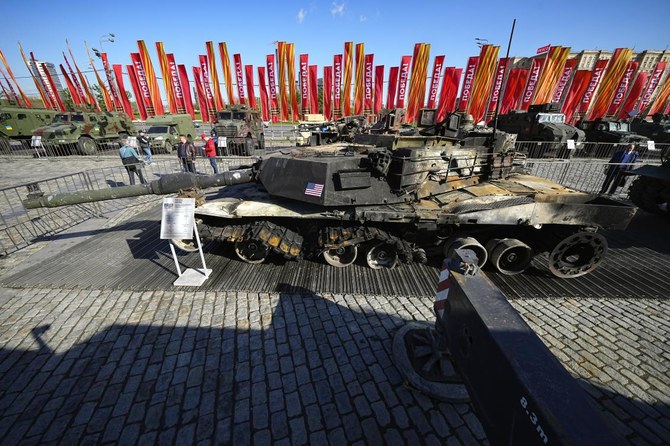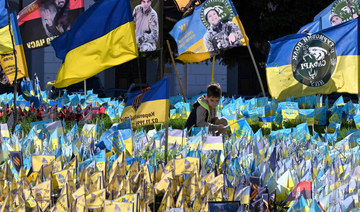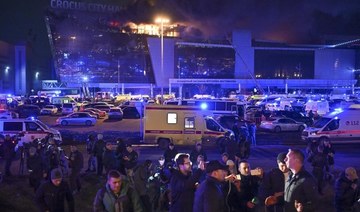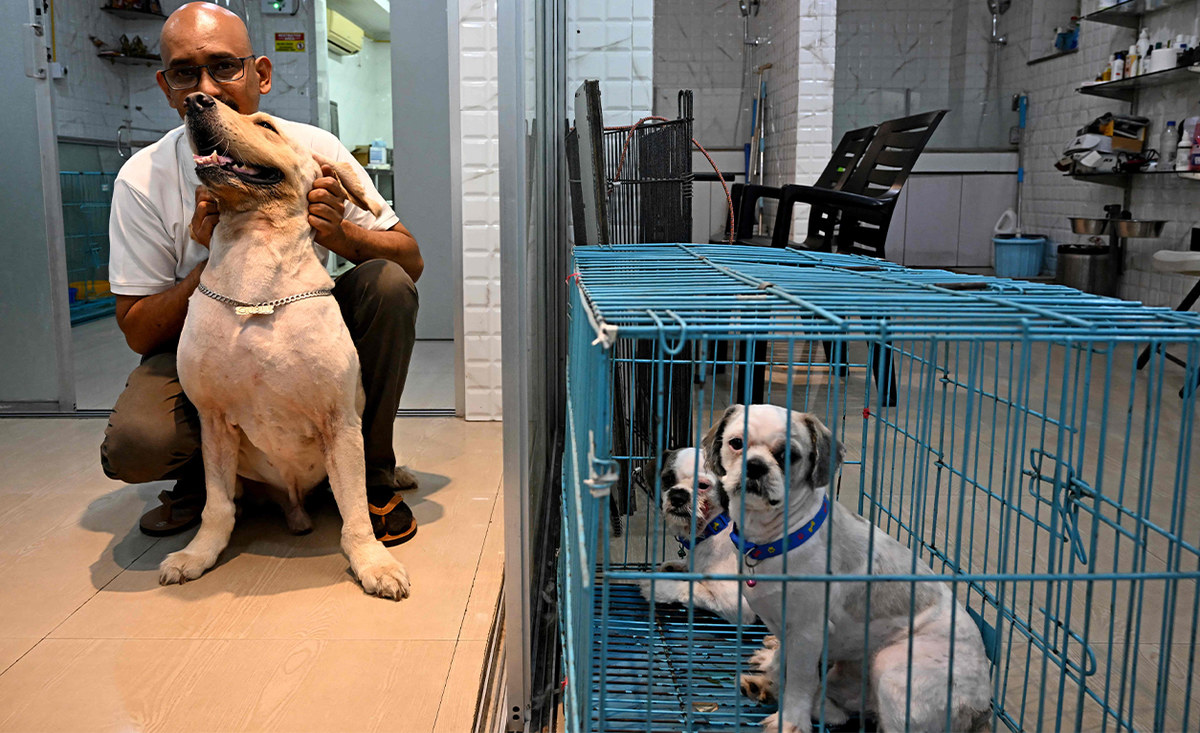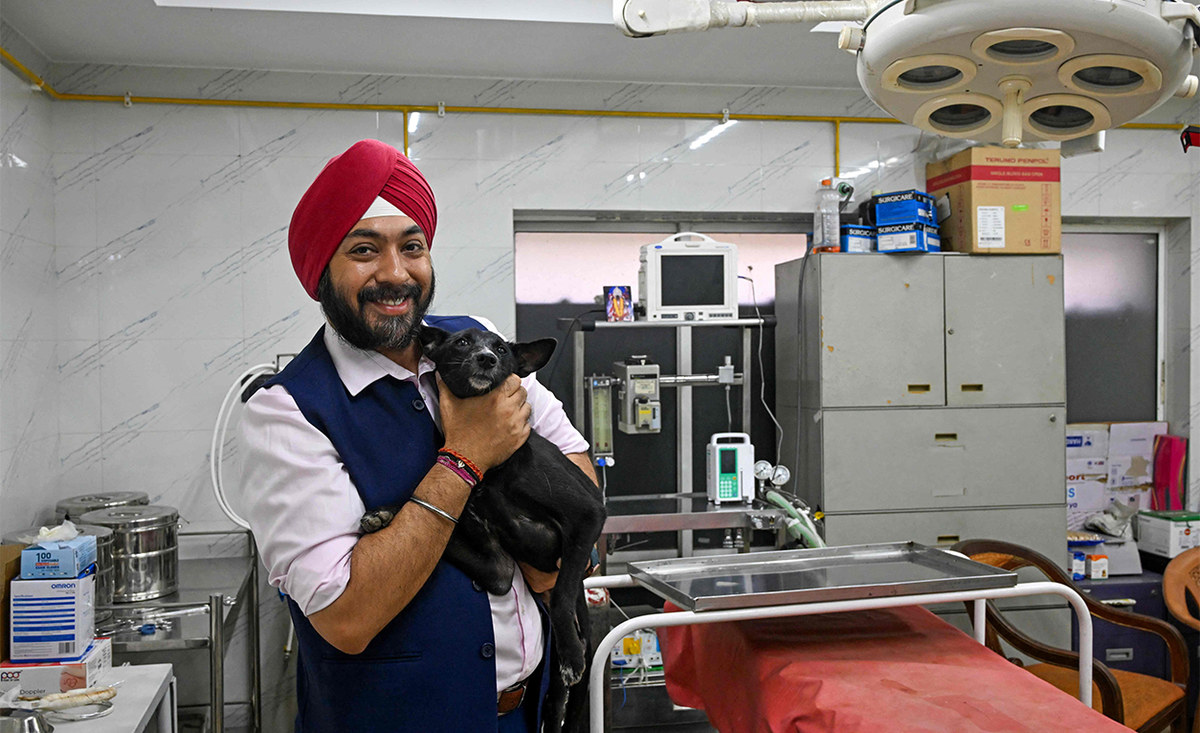BEIJING: China has arrested nearly 13,000 people it describes as terrorists and has broken up hundreds of “terrorist gangs” in Xinjiang since 2014, the government said in a report Monday issued to counter criticism of internment camps and other oppressive security in the traditionally Islamic region.
The lengthy report said the government’s efforts have curbed religious extremism but gave little evidence of what crimes had occurred. The far northwestern region is closed to outsiders, but former residents and activists abroad say mere expressions of Muslim identity are punished.
Criticism has grown over China’s internment of an estimated 1 million Uighurs (WEE-gurs) and members of other predominantly Muslim ethnic groups. China describes the camps as vocational training centers and says participation is voluntary. Former detainees say they were held in abusive conditions, forced to renounce Islam and swear allegiance to China’s ruling Communist Party.
The camps sprang up over the past two years at extraordinary speed and on a massive scale, as monitored by satellite imagery. China maintains a massive security presence in Xinjiang and efforts to independently verify claims by Uighur activists are routinely blocked.
The new report said “law-based de-radicalization” in Xinjiang has curbed the rise and spread of religious extremism.
It said 1,588 terrorist gangs have been crushed and 12,995 terrorists seized since 2014. Over that time, 2,052 explosive devices were seized and more than 30,000 people were punished for taking part in almost 5,000 “illegal religious activities,” the report said. It said 345,229 copies of “illegal religious publicity materials” were also seized.
China’s government has spent decades trying to suppress pro-independence sentiment in the region fueled in part by frustration over an influx of migrants from China’s Han majority. Beijing authorities say extremists there have ties to foreign terror groups but have given little evidence to support that.
Despite the region’s religious, linguistic and cultural differences with the rest of country, China says Xinjiang has been Chinese territory since ancient times.
Experts and Uighur activists believe the camps are part of an aggressive government campaign to erode the identities of the Central Asian groups who called the region home long before waves of Han migrants arrived in recent decades.
Monday’s report sought to underplay Islam’s role in the region’s historical makeup, saying that while it “cannot be denied that Xinjiang received the influence of Islamic culture,” that did not change the “objective fact” that Xinjiang’s culture is a facet of Chinese culture.
“Islam is not the natural faith of the Uighurs and other ethnicities, nor is it their only faith,” the report said.
China has sought to defend itself against charges of cultural genocide, painting its critics as biased and seeking to smear China’s reputation and contain its rise as a global power.
The report shows the “vague and broad definition of ‘terrorism’ and ‘extremism’ by the Chinese government,” said Patrick Poon, a China researcher for Amnesty International.
“It’s exactly because of the Chinese government’s arbitrary and vague definition of these terms that leads to mass arbitrary detention of many ordinary people in Xinjiang,” Poon said.
Poon cited the many families that have lost contact with relatives who are suspected of having been detained.
“It’s simply not normal at all for people losing contact with their relatives if they are merely receiving ‘vocational training’ as the Chinese government claims,” Poon said.
China’s reputation for taking a hard line against religious minorities, and Muslims in particular, continues to draw global attention.
The man arrested in last week’s New Zealand mosque attacks said in his online manifesto that China is the nation that most aligns with his political and social values.
Dilxat Raxit, a spokesman for the World Uyghur Congress, an overseas Uighur advocacy group, said China was using the specter of terrorism in an attempt to undermine sympathy for the Uighur cause.
“The purpose of issuing this report is to seek support for their extreme policies and the trampling of human rights,” Raxit said.
In November, China rejected criticism of its treatment of ethnic Muslims, telling the United Nations that accusations of rights abuses from some countries were “politically driven.”
At a UN review of the country’s human rights record, China characterized Xinjiang as a former hotbed of extremism that has been stabilized through “training centers” which help people gain employable skills.
Last week, a US envoy on religion called for an independent investigation of the detentions and for the release of those being held, describing the situation in Xinjiang “horrific.”
Sam Brownback, US ambassador-at-large for international religious freedom, said China has done nothing to assuage concerns from the US and others over the detention of Uighurs, Kazakhs and members of other Muslim minority groups.
Brownback described China’s explanation of the reasons behind the camps as “completely unsatisfactory answers.”
China is already listed by the US among the worst violators of religious freedom, and Brownback held open the possibility of sanctions and other punitive measures “if corrective actions aren’t taken.”


